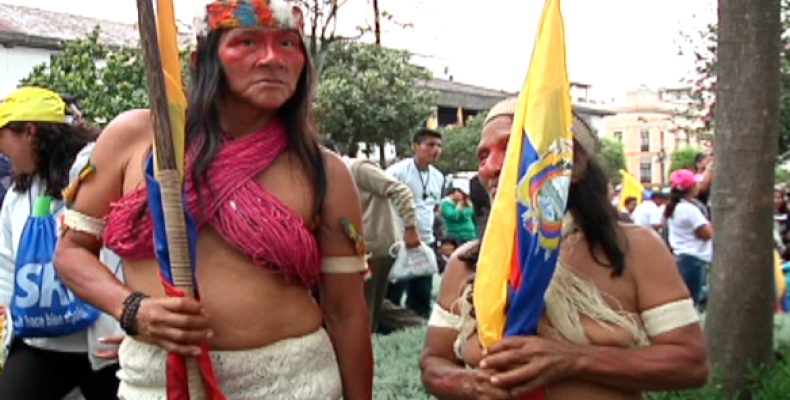Quito, March 13 (teleSUR-RHC)-- As reparation for historical injustices and as a means to strengthen the nation's inter-cultural identity, the Ecuadorean government and citizens are prioritizing the recovery of the country's 14 indigenous languages.
Human migration and societies stigmatization of their tongue are two factors which have led to the near disappearance of some languages in recent years. Studies have shown that in 1950, 14 percent of the population spoke an indigenous language, with that number plummeting to be 3.7 percent in 1990.
Director of the Center for Economic and Social Rights Eduardo Pichilingue told teleSUR English: "I think that language is fundamental for creating a group, so that it has identity. I work with the Waorani indigenous group, the Waorani thankfully have a relatively healthy language, they were contacted not too long ago, this makes the change in their language not as drastic as in other nationalities."
Giving a space to those previously excluded and ignored indigenous voices is the Ecuador Educational Coordination of Popular Radio. With the objective of democratizing communication, it allows Kichwa-speaking producers to design their own programs, and report on both national and international events.
"On behalf of the government, I think there has been an effort to strengthen processes of cultural exchange. I believe the government is working hard in communication processes between people and nationalities. Eighteen community radios have been implemented at a national level to strengthen processes of communication between people from distinct nationalities,” said Sandy Chavez, the Coordinator of Networks at CORAPE.


